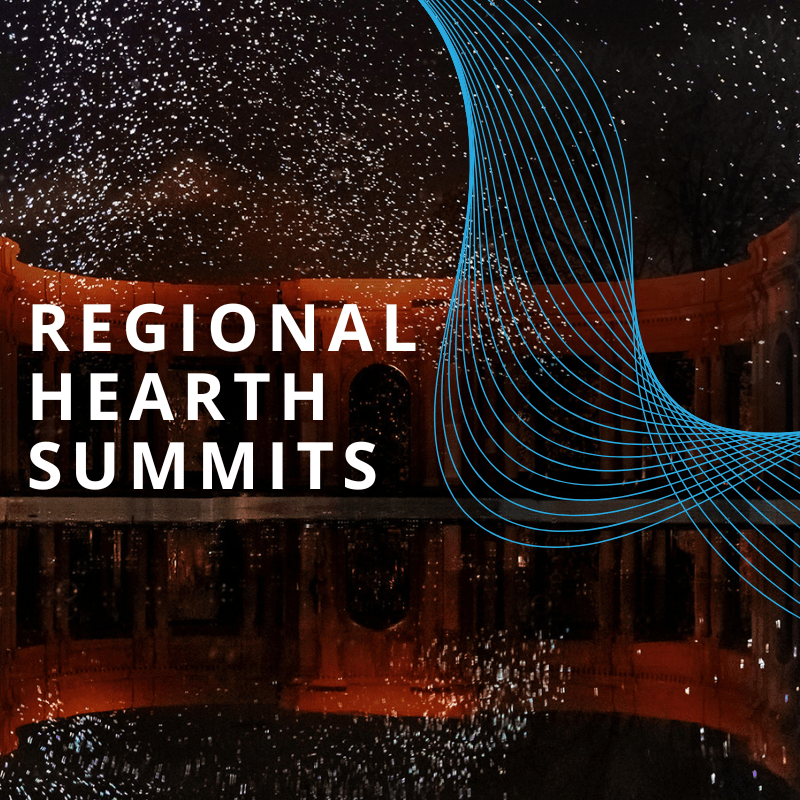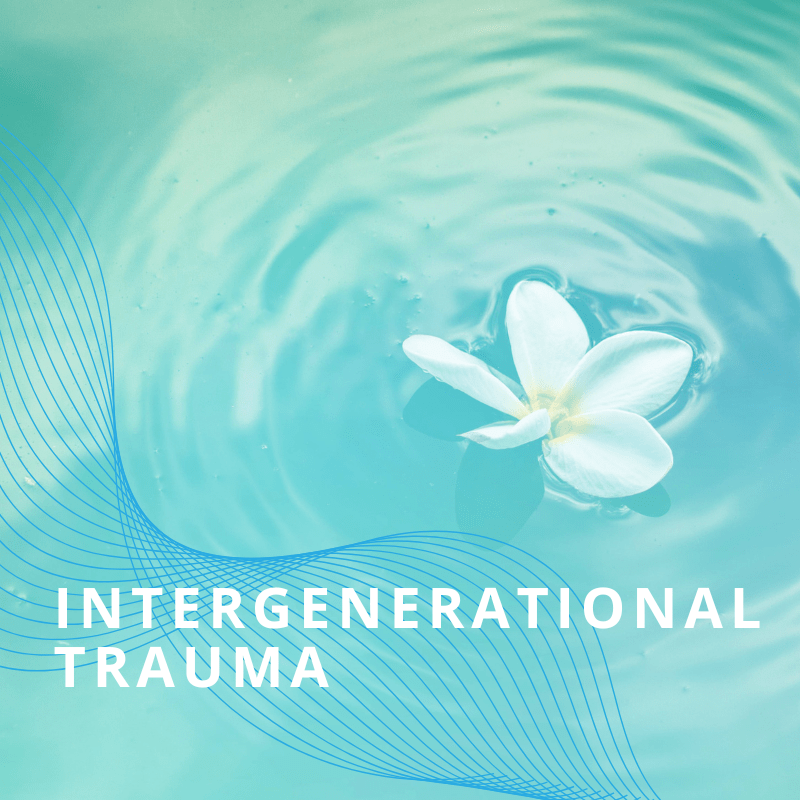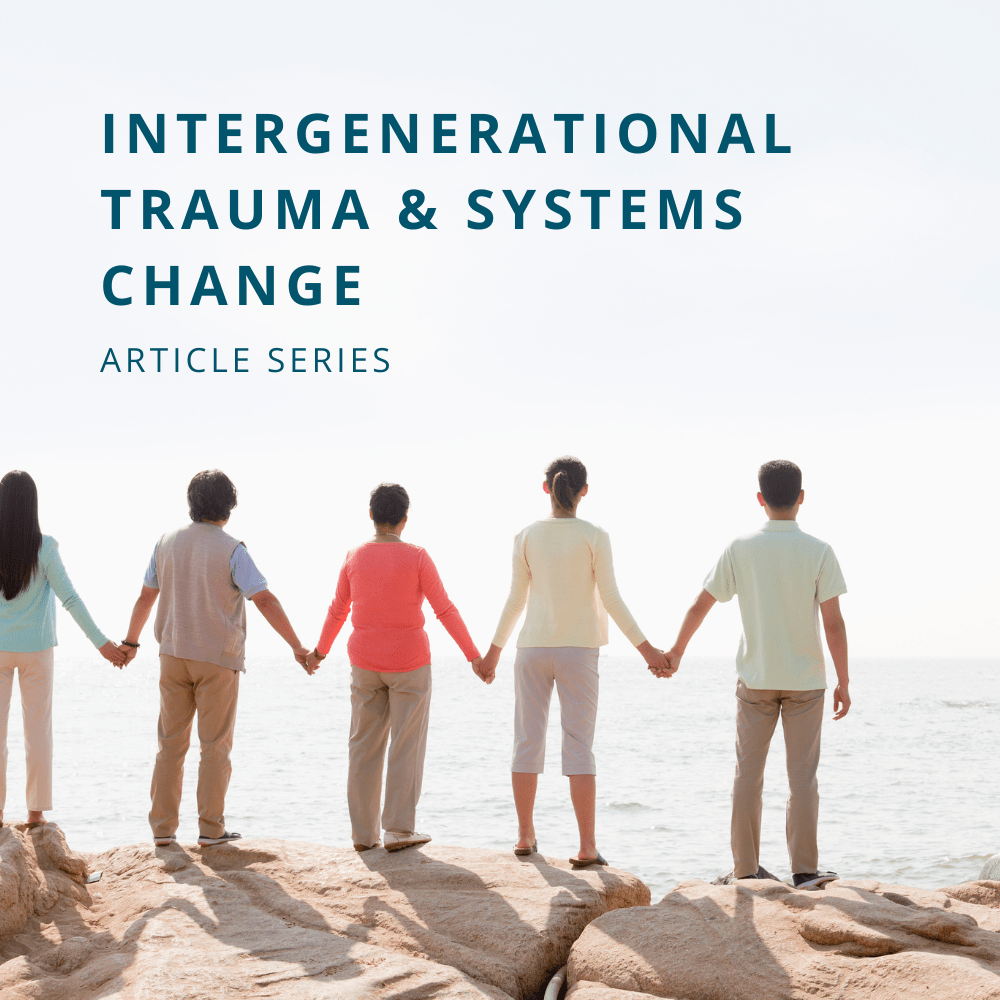A Deep Dive Into Hearth Summit Nairobi 2024A Deep Dive Into Hearth Summit Nairobi 2024
Stories from the Hearth
Reflections From:
The Axum Team
Organizers of Hearth Summit Nairobi 2024
🌍 Nairobi, Kenya

Quick Reads
- Axum hosted the first regional Hearth Summit in East Africa in Nairobi, Kenya, in July 2024.
- The Summit’s four main pillars — restorative justice, intergenerational wellbeing, ecological belonging, and faith and wellbeing — guided insightful discussions on integral aspects of societal wellbeing.
- The Summit embraced an embodied and uniquely Kenyan approach to wellbeing with diverse arts experiences, wellbeing practices, and celebrations of Kenyan culture throughout the event.
- The main takeaways from the Summit centered around the need for driving systemic change using homegrown solutions: for Africa, by Africa!
The Axum and The Wellbeing Project teams gather after a successful first Hearth Summit in Nairobi.
In July, we partnered with The Wellbeing Project to host Hearth Summit Nairobi, the first regional Hearth Summit in East Africa.
The two-day Summit hosted over 300 changemakers from diverse cultures, backgrounds, and fields to explore the intersection of wellbeing and social change. The Summit was thoughtfully crafted to ignite engaging discussions and interactive experiences centered on pillars crucial to our societal wellbeing: restorative justice, intergenerational trauma, ecological belonging, and faith and wellbeing. Within these pillars, participants explored themes that included movements of change and community organizing, wellbeing in the workplace, wellbeing and parenting, sports and wellbeing, among others.
Beyond the breakout sessions, the Summit also offered immersive and interactive art experiences designed to allow participants to explore the concept of wellbeing. These experiences included dance, flower arrangements, and biokinesthetics. Additionally, participants engaged with immersive art such as spoken word and stage readings, musical performances, dances, paintings, tapestries, and a live caricature setup.
For its look and feel, the Summit embraced an Afrocentric aesthetic to cultivate a strong local community atmosphere within our environment. This included using furniture adorned with traditional Kenyan cloth prints and vibrant, patterned banner graphics. The team aimed to create a Summit experience that felt as anti-conference as possible. We wanted our guests to step outside the typical hotel conference room setting, immerse themselves in nature, and participate in physical activities.
Catch a glimpse of the Summit here in this short video:
The four panel sessions touched on the following The four panel sessions touched on the following
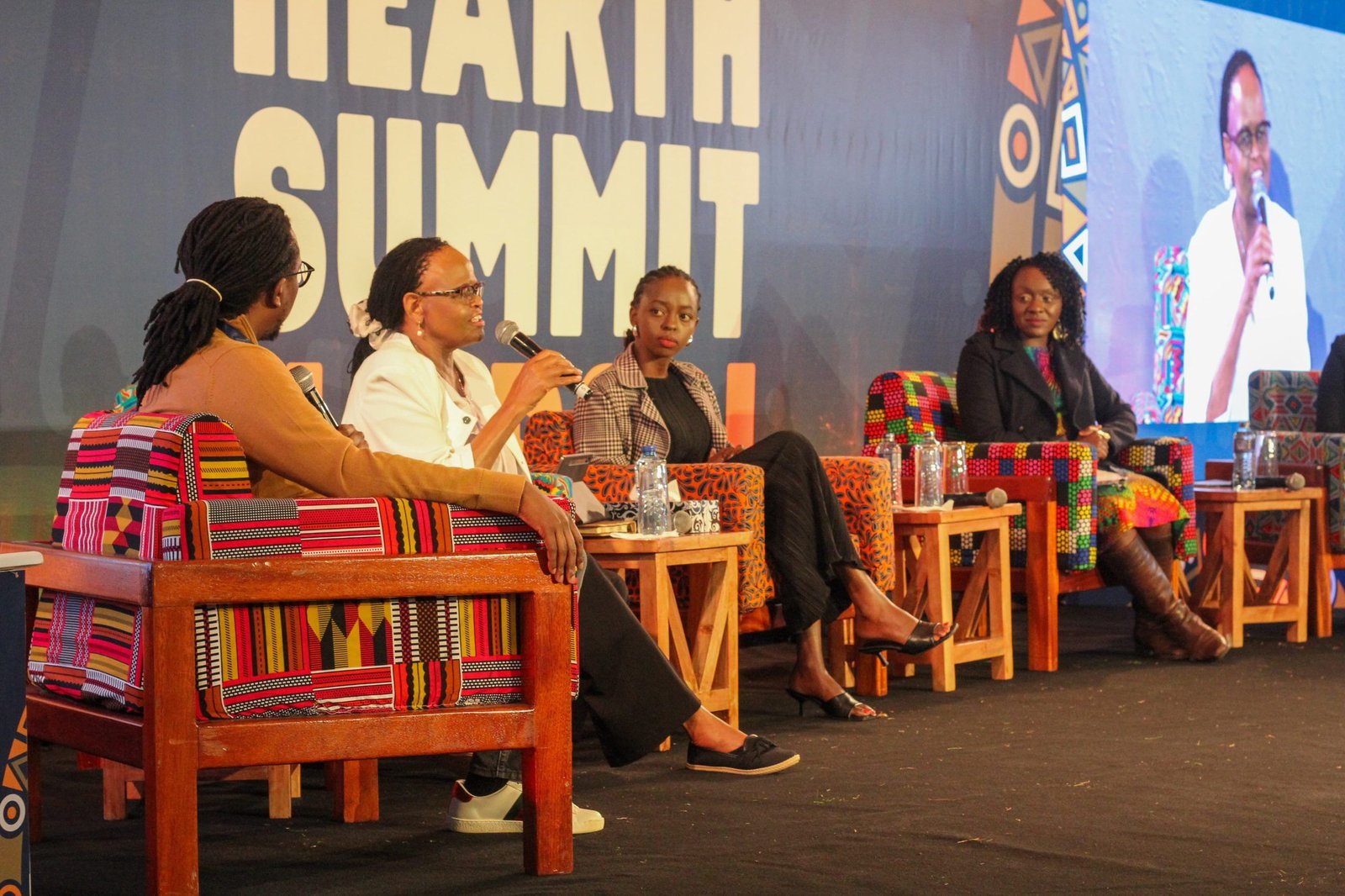
Restorative Justice
This panel was co-chaired by Edwin Macharia, Co-Founder and Managing Partner at Axum, and Chief Justice Martha Koome, a prominent legal authority with over 30 years of experience in criminal, land, and welfare issues in Kenya. The panel explored justice as a shared responsibility and lived experience, requiring empowered individuals, accessible courts, and support for the marginalized. Critical issues discussed included addressing the overrepresentation of people with disabilities in prisons, reducing stigma, and decolonizing the justice system to promote restorative justice.
Her Ladyship Chief Justice Martha Koome speaks at Hearth Summit Nairobi with Waizeh Solonka, AJAR Trust, and Felicia Mburu, Article 48.
Ecological Belonging
The panel was chaired by Wanjira Mathai, MD, Africa & Global Partnerships at the World Resource Institute (in absentia), who unfortunately could not attend the summit. Our very own Fridah Kiboori moderated it, and it explored the deep connection that individuals and communities have with their natural and built environments. The session explored the profound interdependence between humans and nature, recognizing that our wellness and identity are deeply rooted in the health of our ecosystems and spaces.

Faith and Wellbeing
This panel was moderated by Archbishop Anthony Muheria of the Archdiocese of Nyeri, one of the co-chairs. The session explored faith as a lifelong journey of questioning our formal or informal beliefs and recognizing that our collective consciousness and actions unite us. Within formal religion, the panel discussed the common challenge of reconciling it with the perception of religion as oppressive.
Archbishop Anthony Muheria of the Archdiocese of Nyeri speaks at Hearth Summit Nairobi.

Intergenerational Wellbeing
Chaired and moderated by Edwin Macharia, this panel explored how individuals, families, and communities are interconnected and shape our collective ecosystem. The session explored how traditional methods can address community trauma and bridge generational gaps by preserving cultural knowledge and fostering overall wellbeing.
Sam Mugacha, Imaginable Futures, speaks on the intergerational wellbeing panel with Julie Gichuru, Mastercard Foundation, and peace practitioner Tecla Namachanja.
These were our key takeaways based on overarching themes from the Summit:
The significance of decolonizing our political, religious, and social structures to dismantle narratives of inequality and create systems that support collective wellbeing.
The power of intentionally and collectively identifying traumas and unlearning unhealthy habits, especially from an intergenerational perspective.
The need to remove economic, social, and infrastructural barriers to wellbeing initiatives and ensure accessible and inclusive resources for all.
For Africa by Africa. Homegrown solutions work, and we have what it takes to solve Africa’s challenges.
We left the Summit feeling reinvigorated by the insightful conversations and the deep spirit of community. We’re excited to continue the dialogue around the wellbeing movement in Kenya and look forward to championing a pan-African effort to bring the movement to the rest of the continent!
EXPLORE THE REGIONAL SUMMITS FURTHEREXPLORE THE REGIONAL SUMMITS FURTHER
Dive Into Stories From Around the World
Discover the Wellbeing Movement in AfricaDiscover the Wellbeing Movement in Africa
Meet and hear stories from the changemakers championing the wellbeing movement in Africa.

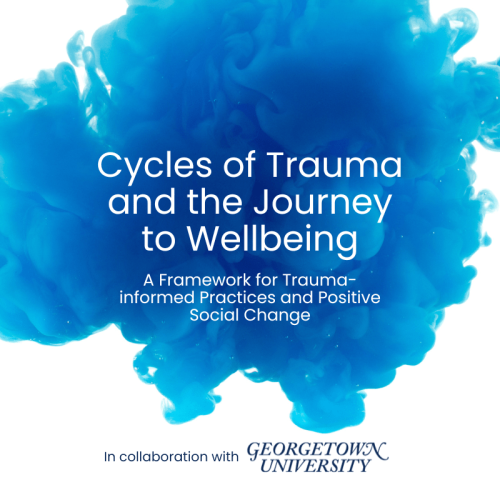
Cycles of Trauma and the Journey to Wellbeing
A Framework for Trauma-Informed Practices and Positive Social Change
In 2023, the Think Tank released the executive summary of “Cycles of Trauma and the Journey to Wellbeing: A Framework for Trauma-Informed Practices and Positive Social Change”
Written by the Think Tank’s multidisciplinary, cross-institutional Research and Design Team, guided by 12 leaders in academia and the social change sector, the framework offers a synthesised view of trauma, healing, and social change, and invites changemakers to reflect on how they can adopt a trauma-informed approach in their work.
Watch Webinar Series
Intergenerational Trauma & Systems Change
Intergenerational Trauma Explorations Across Our Network
Explore More
Empowering Kenyans Through Justice: Chief Justice Martha Koome on Wellbeing in Kenya Empowering Kenyans Through Justice: Chief Justice Martha Koome on Wellbeing in Kenya
Stories from the Hearth
Reflections from:
Her Ladyship Chief Justice Martha Koome
Chief Justice of the Supreme Court of Kenya
🌍 Nairobi, Kenya
Her Ladyship Martha K. Koome assumed office as Chief Justice and the President of the Supreme Court of Kenya on May 21, 2021.
Prior to her appointment as the 15th Chief Justice of the Republic of Kenya, she was a Senior Judge of the Court of Appeal. During her stint as an Appellate Judge, she headed the Criminal Division of the Court and in addition, chaired Committees which developed the Court of Appeal Practice Directions in Civil and Criminal Appeals as well as the Registry Manual that standardized the registry experience at the Court.
At Hearth Summit Nairobi, the Chief Justice was chair of the pillar on restorative justice, providing deep insights on the role of formal and informal justice in societal wellbeing. She also spoke about the need to support the wellbeing of actors in the judicial system, like judges.
Read her reflections below, originally published on her blog, and watch her exclusive interview with The Star Kenya.
“I have the immense honour to co-host the Hearth Summit Nairobi, 2024 alongside Archbishop Anthony Muheria, Archbishop of Nyeri, Kenya, Wanjira Mathai, Managing Director, Africa and Global Partnerships, World Resources Institute and Edwin Macharia, Partner, Axum Kenya; The Wellbeing Project’s Advisory Board.
The Hearth Summit, hosted by local communities of changemakers, advances a hopeful vision of individual, collective and ecological wellbeing for all – catalyzing a culture of wellbeing for changemakers and in changemaking everywhere.
At this critical moment in our country and planet, wellbeing in all aspects remains core to our survival. At the Judiciary, we are focused on nurturing restorative justice which will heal the justice system by reshaping it through the lens of our innate, empowering age-old reconciliatory systems.
We are deliberately deploying green justice to ease remand and prison congestion and encouraging parliament to review our penal laws in alignment with the Constitution and post-independence state.
By investing in alternative justice systems, we acknowledge that justice is not only found in the formal court system but in homes, communities, places of worship and markets hence the need to have multiple ways of resolving disputes.
We will continue to nurture cohesion through justice and to find uplifting homegrown ways to ensure that the justice system holds safe and sacred the fabric of our society. As we protect the wellbeing of our nation, we also seek your support to nurture and protect the wellbeing of our exceptional judges, judicial officers and staff.
It is not the structure of the systems we build that guard our humanity, it is the humanness of those systems that make our lives dignified and worthy.”
EXPLORE THE REGIONAL SUMMITS FURTHEREXPLORE THE REGIONAL SUMMITS FURTHER
Dive Into Stories From Around the World
Discover the Wellbeing Movement in AfricaDiscover the Wellbeing Movement in Africa
Meet and hear stories from the changemakers championing the wellbeing movement in Africa.
Wellbeing Wisdom From India: An Interview with Dr. Mala Kapadia on Intergenerational Trauma and Ecological Belonging Wellbeing Wisdom From India: An Interview with Dr. Mala Kapadia on Intergenerational Trauma and Ecological Belonging
A CONVERSATION WITH:
Dr. Mala Kapadia
Director, Anaadi Centre for Indigenous Knowledge Systems, Anaadi Foundation
🌍 Tamil Nadu, India
What can traditional Indian Knowledge Systems teach the world about wellbeing?
Dr. Mala Kapadia, director of the Anaadi Centre for Indigenous Knowledge Systems at the Anaadi Foundation, shares knowledge and practices from the Indian sciences of Ayurveda, Yoga, Aesthetics, and Poetry, around Ecological Belonging and intergenerational trauma.
Watch the full video for her teachings, or read the highlights below.
“In India, I realized that the ideal could be that India becomes the voice for humanity — where you see the vibrancy of people practicing Ayurveda, practicing Yoga, living their civilizational, cultural values, which is slowly happening post-pandemic. It is slowly happening.”
WHAT ARE THE SCIENCES OF AYURVEDA AND YOGA AND HOW DO THEY RELATE TO WELLBEING?
Ayurveda, as they describe it, is a manual of life skills. It’s not just a medicinal system. It’s Veda- knowledge of ayu. Ayu is life. Ayurveda actually describes Life, and the beauty of Ayurveda is that it is for everyone. It’s not only for Indian people. It’s not for the people from a certain region, but the Sages talked about humanity at large. They say that our life has purpose and meaningfulness and to achieve that, there are paths, right?
The path begins with dharma, a Sanskrit word coming from the etymology Dharayati Iti Dharma. Meaning, anything that sustains you, holds you together, is dharma. I feel it’s a beautiful way to look at our life. It’s only psychology that has taken more than 200 years to reach positive psychology where Martin Seligman and others are talking about meaningfulness. And here there are sages many, many millennia ago who wrote about how life has to be meaningful for us to be healthy and happy. They describe life as Hita, beneficial to self and others, because they always saw life as a continuum: we and the Cosmos, we and everyone else, are interconnected. And only when we are leading a life which is interconnected and integral, can we be happy. And happiness is, not the pursuit of happiness that we understand today in a modern language, but it’s all about the State of Being. With the wellbeing crises that we see today, I realize that Ayurveda beautifully connects the wellbeing of the planet and wellbeing of an individual.
With the wellbeing crises that we see today, I realize that Ayurveda beautifully connects the wellbeing of the planet and wellbeing of an individual.
WHAT DO AYURVEDA, YOGA AND OTHER INDIAN SCIENCES TELL US ABOUT NEUROSCIENCE, EMOTIONS, AND HEALING?
What Yoga, Ayurveda, and the science of Aesthetics are talking about is being rediscovered and not just rediscovered, it’s being validated scientifically by some modern theorists. Today a lot of scientists talk of neurotransmitters, et cetera, but they look at only the brain. If you revisit our biology or anatomy from a Yogic perspective, our physical body that can be seen and studied or x-rayed is one reality, but we are also energy sheets.
So we are still stuck learning biology and anatomy from a Newtonian or Cartesian perspective dividing body and mind. But what is mind? People are still struggling to understand it. While in Ayurveda and Yoga, the body-mind continuum is very beautifully described. We have seven chakras, the major chakras, and many minor chakras. And I’m glad today chakra, like mantra and dharma, is a word in Western vocabulary as well. These are what Georgetown University neuroscientist Candace Pert talks about nodal points of neurotransmitters. The neurotransmitters on those nodal points of the chakras are either blocked or they are open. So when they are blocked, naturally the energy flow is restricted and therefore the energy or Prana does not reach those organs which are connected with those nodal points. She was one of the, I think, first Western scientists to say that body and mind is a continuum.
HOW CAN THIS KNOWLEDGE HELP US WITH HEALING FROM TRAUMA?
So when I go back to Yoga and Ayurveda as ancient sciences as I said, “If we all are integrated, we all are connected, then my energy and the world’s energy is somewhere merging together, right?” Energy, we all know, cannot be created or destroyed. It needs to be transformed. So when we look at trauma, trauma is an energy block as I see it personally. If it’s a blocked energy, then which chakra is it impacting? Is it impacting your security? Is it impacting your relationships? Is it about your power or victimhood? Is it about your heart experiencing gratitude or is it about your heart experiencing a closed xenophobic existence where you switch on to a survivalistic mode? This is what scientifically people talk about trauma and the response to trauma as fight, flight, or freeze. But that fight, flight, freeze is not just limited to the brain. It travels all over the body. So, if my mind is in every cell of my body, then my trauma response is also coming from every cell in my body. It’s not only a cognitive skill.
This is where Yoga and Ayurveda come into play because they have a lot of practices which can help you dissolve these traumatic emotional imprints without wanting to bring them up to the brain, which is not able to cope.
And they can be dissolved with a lot of Ayurvedic treatments, Ayurvedic lifestyle guidance meditations and Yogic lifestyle. And when I say Yoga, it’s not just exercise or breathing exercises or physical postures. Patanjali’s Yoga Sutras, one of the oldest texts of Yoga talks of Yama and Niyama, which are the behavioural codes at the individual level and collective level. So unless we practice them, doing breathing exercises and doing postures will not give us results.
DO INDIAN SCIENCES TELL US HOW INTERGENERATIONAL TRAUMA AND ECOLOGICAL BELONGING ARE CONNECTED?
In all ancient indigenous cultures, I found one thing common is, apart from being connected with nature, they’re also connected with their ancestors. Our history, our ancestors, are living within us, not just genetically, but psychologically and spiritually. Ancestor healing is a major ritual in most of the indigenous cultures, including India. In India, we have birth charts. The moment you are born, depending on the time of the birth, a birth chart for every child is created. Most of the birth charts have a problem with ancestors. It’s called Pitru Dosha. Pitru are ancestors and Dosha is some problem. Now, obviously, we really don’t know what our ancestors were going through, right? Beyond a certain generation, we don’t even know our ancestors. And we don’t even know what their life was. We don’t even know what trauma they went through. But whatever their trauma, we have inherited it and the trauma of Mother Earth. That’s also an ancestral trauma. There are a lot of rituals connected with the five elements – the element of sky or ether or Akaash; the element of air or Vayu; Fire; Water; and Earth – because many ancient indigenous cultures believe that the entire universe and our body all are made up of these five elements.
WHAT IS AN EXAMPLE OF AN INDIAN PRACTICE ONE CAN DO TO WORK ON INDIVIDUAL AND COLLECTIVE HEALING?
One ritual we have is ending all the prayers with saying, “Shanti hi, Shanti hi, Shanti hi.” Shanti means peace. Why do all prayers end with saying peace three times? Just one time could have been enough. The three “peace” is invoking peace at three levels: one, individual, me and myself; two, collective, which is the community around me, society, Nature around me, my nation; and three, the global level and Universal level.
Today, when there are wars happening, when there is so much destruction happening, when there is so much human suffering, working on peace and giving it priority is very important. I realized that, unfortunately, most of the Western researchers define peace as an absence of war or conflict. Peace is not seen as a positive construct in itself, which is there in India. In Indian literature, in Indian philosophy, peace is a positive construct. Health is a positive construct. Health is not as opposed to disease and peace is not opposed to war or conflict. So, if peace is a construct in itself, how do you arrive at it? How do you actually start experiencing peace from within? And chanting mantras, chanting simple Om, is one way.
Why do all prayers end with saying peace three times? The three “peace” is invoking peace at three levels: one, individual; two, collective ; and three, the global level and universal level.
YOU’RE DESCRIBING HOW MODERN SCIENCES ARE “VALIDATING” TRADITIONAL SCIENCES. DOES THIS MEAN THEY ARE THE SAME?
We talk of ancient or indigenous wisdom at one level and modern at another. And a lot of people have this misconception that ancient is outdated and modern is more scientific, or modern is the complete know-how. Unfortunately – or fortunately – we realize that what is ancient is being rediscovered by many modern theorists. So we as humanity, we just have to take a U-turn and go back to our own cultural roots, civilizational roots. I realize that most of the indigenous cultures, they were connected and rooted in nNature. I’ve been to Hawai’i. I’ve met some of the Kahunas, the wisdom holders. And one of the Kahuna, I still remember, she held my hands and she said, “You are one of us.” I realized that she felt that and I felt that because of the Mother Earth. We could have lived in different lifetimes. We could have lived in different geographical locations, but ultimately, it’s all One.
I’ve been to Hawai’i. I’ve met some of the kahunas, the wisdom holders. And one of the Kahuna, I still remember, she held my hands and she said, “You are one of us.” I realized that she felt that and I felt that because of the Mother Earth.
IN FACING OUR 21ST CENTURY CHALLENGES, WHAT ROLE DO YOU THINK SPIRITUALITY AND THIS ANCIENT WISDOM CAN PLAY IN THE SOLUTIONS?
The industrial revolution has uprooted people from nature. Nature has become a resource to be used and exploited. People became a resource that needs to be used and exploited and we didn’t realize that we ourselves became this resource. This trauma needs to be addressed because today, corporates have to wake up to the spiritual aspect, which is not a philosophical aspect, it is a practical aspect. Most of the United Nations Sustainable Development Goals are far away from being met.
When we are spending so much money on sustainability goals, climate change, et cetera, what we don’t realize is, we just need to bring back that foundation of spirituality, Dharma, in everything we do. And the moment that foundation comes back, everything will fall into place. Right now, we have lost the bigger picture. We are all struggling with pieces of puzzles, trying to fit them here and there. But spirituality is like a bigger picture, and without looking at that bigger picture, we are not able to fit in those pieces of the puzzles.
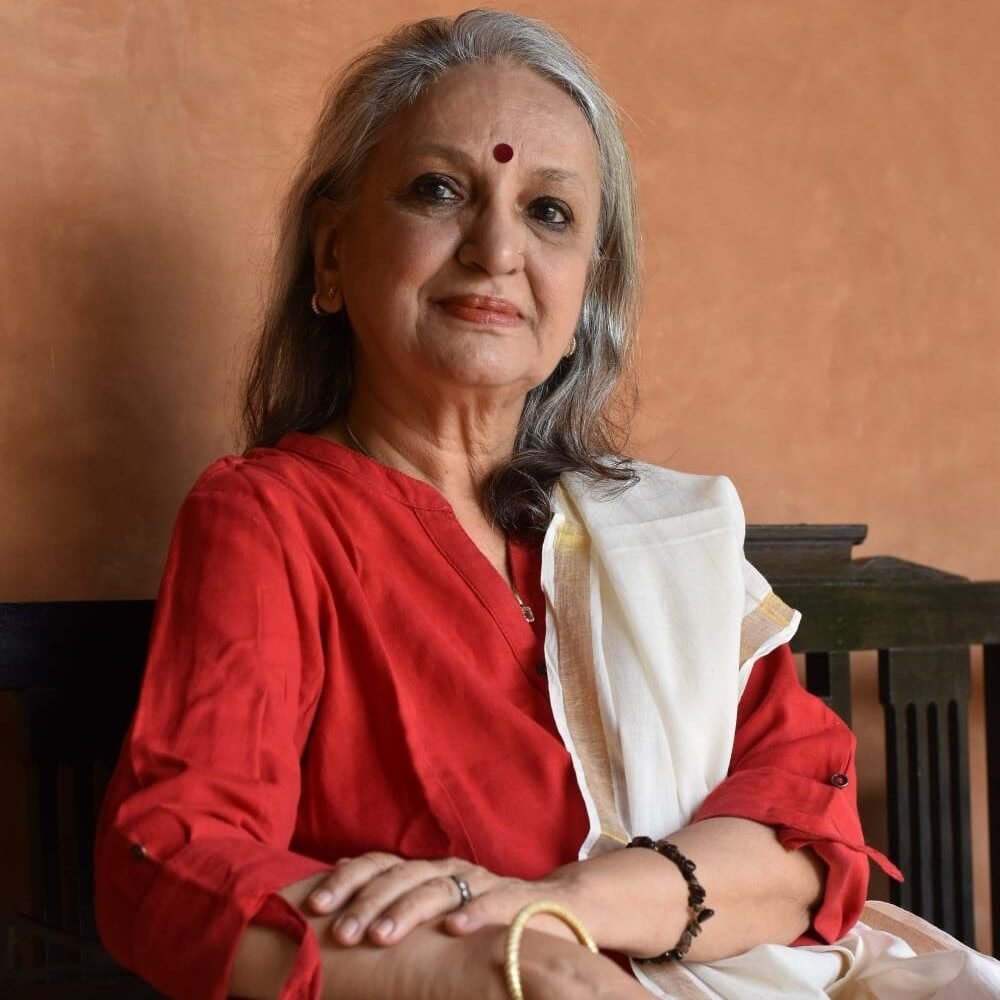
About Mala
Dr. Mala Kapadia is a highly accomplished scholar and practitioner with a distinguished career spanning research, education, journalism, human resources, and consulting. She is a passionate advocate for integrating ancient Indian wisdom with modern approaches to wellbeing, leadership, and organizational development. Dr. Kapadia is currently the Director of Centre for Indigenous Knowledge Systems, at the Anaadi Foundation and the Principal Investigator for a Ministry of Education (India) Indian Knowledge Systems Research Project on Wellbeing and Happiness based on Ayurveda. Mala is also a Guru participating in Grateful to Gurus, an initiative by Indica Academy, in which she inspire young minds in ancient wisdom. She is also a member of the Advisory Council of Centre for Indian Knowledge Systems at Chanakya University, Bengaluru, India.
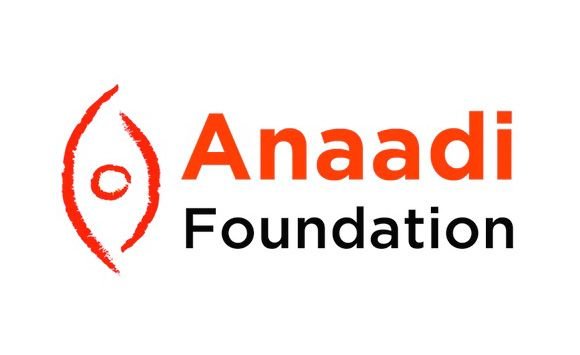
About the Anaadi Foundation
Anaadi Foundation is a spiritual organisation founded in 2015 and located near Palani in Tamil Nadu, India. With key focal areas on Education, Culture, Wellbeing and Sustainability, the Anaadi Foundation focuses on imparting Indian Knowledge Systems through various initiatives including Dharma Gurukulam, IKS-funded projects, publication of books, and training programs. The Anaadi Foundation provides various programs aimed at physical, emotional, and cognitive stability. These include the Mouna Sadhana program, which integrates asana, pranayama, dharana, dhyana, and Bhagavad Gita sessions. The foundation actively engages in sharing and preserving the depth of Indian culture, sciences, and values.
Want to know more about trauma and its impacts?
Watch the first virtual convening in our webinar series hosted by The Wellbeing Project and the Collective Change Lab. You can also visit our new hub for research and stories on intergenerational trauma. Together, we explore how we can move from trauma-informed to healing-centered ways of working for systemic change.
Discover the Wellbeing Movement in IndiaDiscover the Wellbeing Movement in India
Meet and hear stories from the changemakers championing the wellbeing movement in India.
Healing From Trauma: The Leadership Skill You Didn’t Know You Needed Healing From Trauma: The Leadership Skill You Didn’t Know You Needed
A CONVERSATION WITH:
Benoît Legrand
Business leader, psychogenealogist, former CEO and Chairman
🌍 Paris, France
As the conversation around the impacts of trauma in the social change sector continues to grow, changemakers can take an opportunity to reflect on how their wellbeing impacts their leadership skills.
Last November, TheMerode Club brought together seasoned executives from the government, business, civil society, and academic sectors to reflect on wellbeing at the individual, collective, and planetary levels.
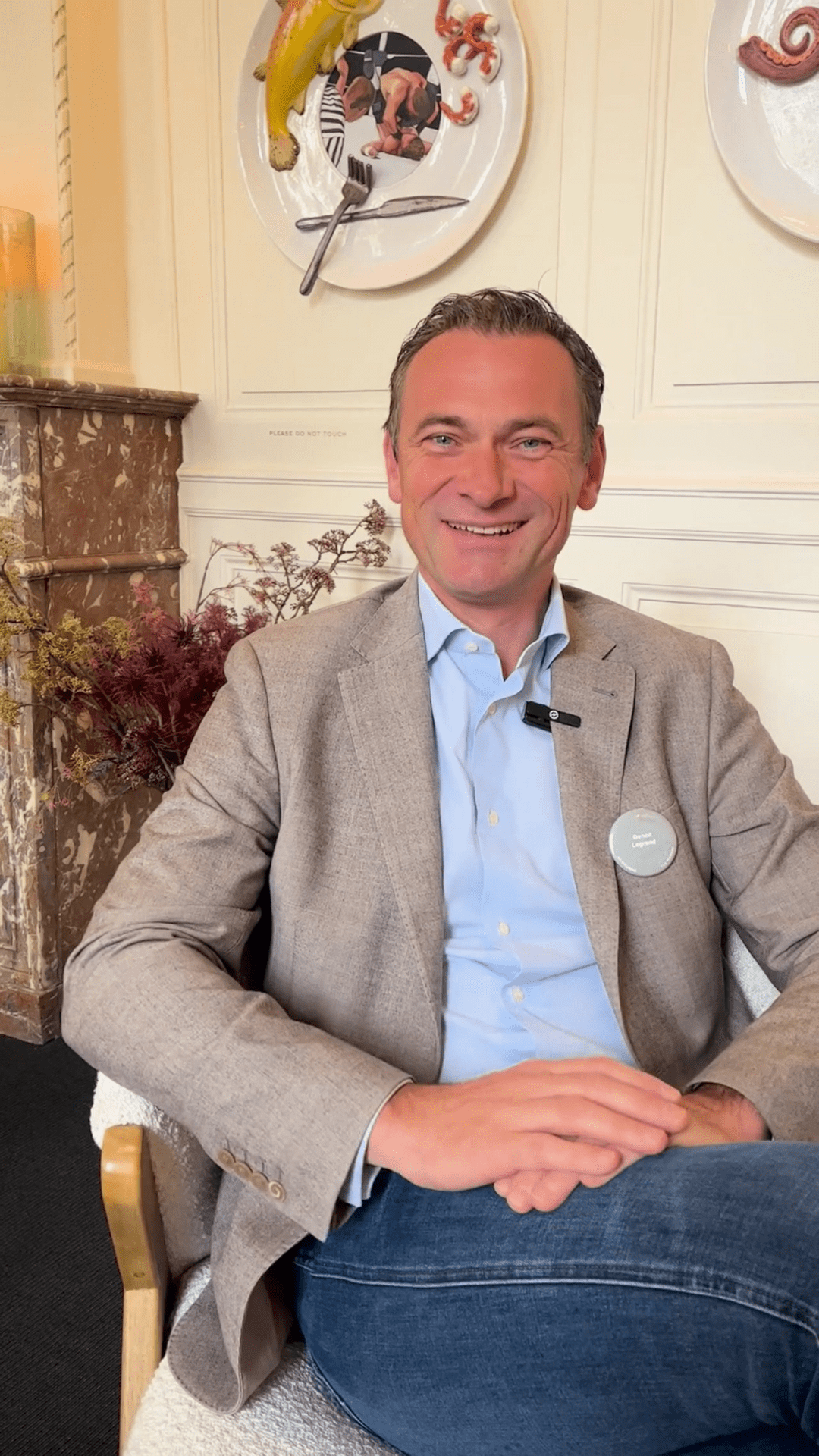
Benoît Legrand, a visionary business leader with over 25 years of experience in various C-level positions in the European financial sector, joined The Wellbeing Summit Brussels to share reflections from his career in business and newfound venture as a psychogenealogist.
Speaking on a panel about the impacts of intergenerational trauma with The Wellbeing Project’s co-lead, Aaron Pereira, and Katherine Milligan, Director of the Collective Change Lab, Benoît encouraged changemakers to connect the individual with the organizational by asking themselves: how do my traumas impact my leadership style?
We sat down with Benoît to dive deeper into this topic. Drawing on his business and personal experiences, hear from Benoît about why acknowledging and addressing one’s traumas is an essential leadership skill, plus encouragement for leaders to start this important journey.
“It should be part of the essentials of leadership. Because, knowing your own darkness is, I think, the best method for dealing with the darkness of other people. You cannot have change, have people change, and change yourself before you accept that something is really wrong. Right?”
Tell us about the impacts of trauma.
Trauma, for me, is something which we all go through, and something absolutely necessary to be aware of to give the best of yourself and find your place in this world. The idea of “trauma” might give or have a sense of drama, which is of course very true when we think about those very macro-level traumas which have affected large populations or very deep traumas that some individuals can go through. Yet, trauma goes also into more subtle dimensions of things which traumatize you. You can be affected by what happened to you consciously, but also by what happened in your family, school, community, country, continent, or race. These impacts are being inherited, which we see now from an analytical and empirical point of view. So in a way, we are all traumatized. But it’s okay. The point is merely for every one of us to just first acknowledge it, dare to look at it and think beyond everything which we know consciously.
I’ll always have in my mind what Carl Jung said, “who looks outside, dreams, and who looks inside, awakes.” I’ve learned that from this process. I thought just looking outside would make me smart and intelligent. But the awakening comes from looking inside of myself, not being scared and not being afraid. By facing reality, we can unlock a lot of situations.
Leaders care about so many people and they don’t want to let anyone down. But they should realize that if they go down themselves, they let everyone down.
When leaders do inner work, including healing from trauma, how does it impact their organization’s wellbeing?
It’s just essential to face your trauma as a leader. You will notice anyone who’s just going out there and showing his vulnerability, just making himself more human. As a leader, if you effectively radiate this positive energy, then it diffuses around the organization. It’s a bit like a pendulum: if at the very top, the positive radiation is there, the radiation at the bottom will be just proportionate. And if the organization is big, or you go to a company or a country, then the impact you can have is just immense. So it’s our own responsibility to think for ourselves: What do I want to be in this world? Do I want to be an agent of positive radiation? Or do I still want to keep all this hatred and and violence and fear and negative energy in myself and overload the world with that right?
Do you think leaders understand the importance of caring for their wellbeing?
Let’s say, okay, we know it’s important to eat. We know it’s important to sleep. We know it’s important to read good things. But do we take, as leaders, the time to step back to sit with someone and just have a conversation? Get a couple of things out, talk and discuss, just to say, “Well, I’m not alone here, right?” and to take care of yourself? It’s fantastic because leaders care about so many people and they don’t want to let anyone down. But they should realize that if they go down themselves, they let everyone down. So having a preventative strike, taking a step back, breathing it, having a discussion and looking at your psychological health is very important. But that can be very hard for leaders, to say, “I need to ask for help.” I personally have been very bad at this.
Can you tell us a bit more about that?
I’ll just testify what I’ve been through. I was having a very intense business life. I was managing teams all over the world and travelling 80% of the time. I was also under heavy stress, with a new CEO that was misaligned with what I was thinking. There was a combination of things, including me having worked like hell for the last 20 years, going all over the place, with pressure from left to right. And at one point, my body – because my brain didn’t want to understand it – sent the signal: stop. My heart gave me a very strong signal that I needed to stop. I stayed in the hospital for four or five days, where I realized that I went over a limit because I was not sufficiently courageous to face my limits and ask for help.
I kept denying reality. I thought, because I’ve been through so many challenges and successes as a leader, I’m going go through it this time also. I’m not going to ask for help or say I’m vulnerable. But the second problem is once you effectively realize you’re not OK and you might not manage to deal with the situation, there’s some kind of taboo. So you just keep fighting on your own. This is what leaders might face. I know that in France, about one out of two leaders or entrepreneurs is close to being in burnout. One out of two, which is just dramatic.
So what should leaders be doing to care for their own wellbeing, which then will have a positive impact on their organizations?
You, as a leader and manager, have been doing nothing else than daring right? You have been taking risks. This is what you do daily. But there are also risks to take about yourself so you can see a couple of things. It’s okay. You will be more powerful by doing it. And really, what do you have to lose? Even if you’re 40, 50, 60, you still have life to live. What do you want to do with it? So look forward and say, “Is it worth taking the time and challenging myself just to try to be at the best place can be on this planet?” If you take that time, once you’re there, nobody can stop you.
Look forward and say, “Is it worth taking the time and challenging myself just to try to be at the best place can be on this planet?” If you take that time, once you’re there, nobody can stop you.
And the systemic approach is so powerful. We live in systemic environments: whatever changes something which influences something which changes, and so on. Once you start talking about something, you see things happening around you. The power of communication, daring to put things on the table and explain things, starts to unlock a lot of things that can bring a lot of peace.
But do this in a secure environment: bring safety and security around you. It can be hard, but if you do it with the right spirit of care, love, and positivity, it will come right back to you.
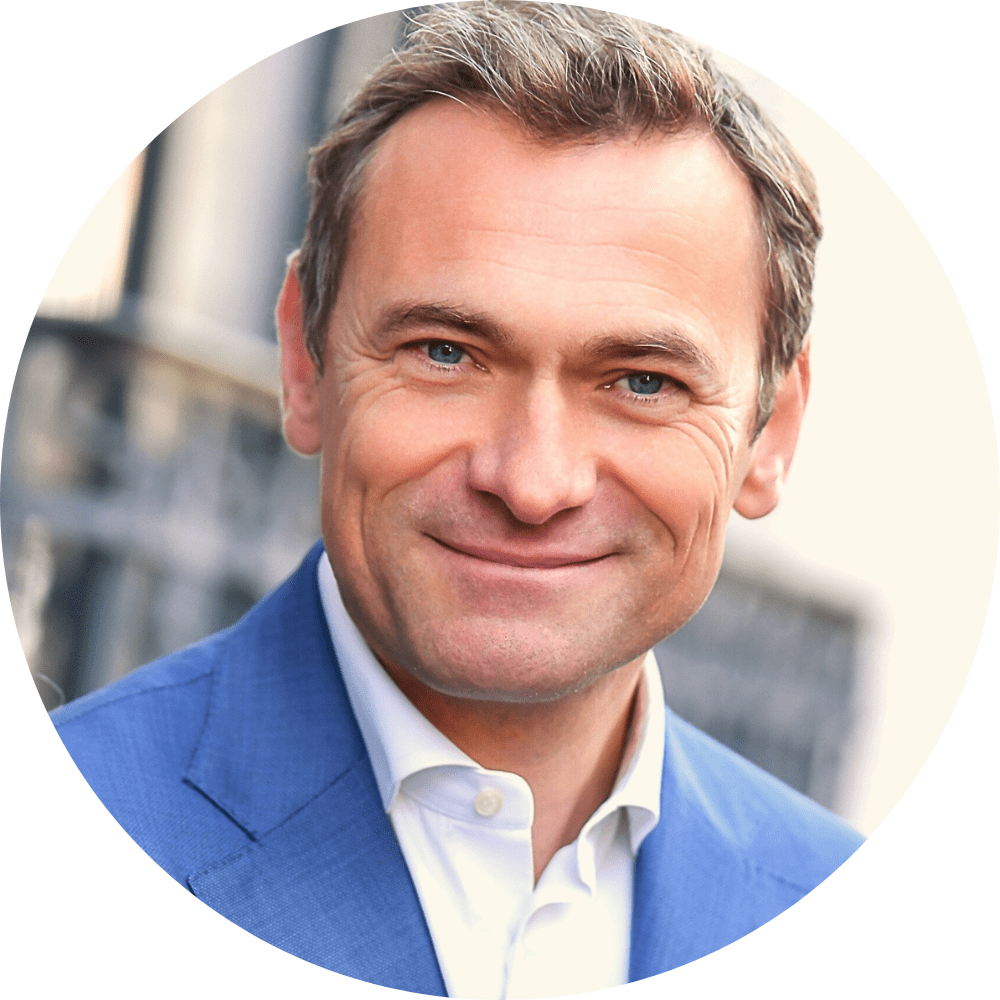
About Benoît
Benoît Legrand is a visionary business leader with over 25 years of experience in various C-level positions across multiple countries. Throughout his career, Benoît’s driving conviction has been centered around putting people at the heart of the company. He believes in genuine care for employees and customers to achieve lasting success. Having served as CEO of ING Direct France, Country CEO of ING France, and Chairman of ING France, he demonstrated his dedication to innovation by spearheading ING Ventures, the EUR 300m Corporate Venture Capital arm. After leaving ING in 2021, Benoît now advises organizations on innovation and transformation. He holds degrees in International Relations and Economics. Belgian and based in France for over 10 years, he has lived in 8 different countries and speak 5 languages.
Want to know more about trauma and its impacts?
Watch the first virtual convening in our webinar series hosted by The Wellbeing Project and the Collective Change Lab. You can also visit our new hub for research and stories on intergenerational trauma. Together, we explore how we can move from trauma-informed to healing-centered ways of working for systemic change.
Discover the Wellbeing Movement in Europe Discover the Wellbeing Movement in Europe
Meet and hear stories from the changemakers championing the wellbeing movement in Europe.

Interconnected Healing From Intergenerational Trauma Interconnected Healing From Intergenerational Trauma
Healing x Regional Hearth Summits
With a growing collective consciousness about the impacts of intergenerational trauma, the regional Hearth Summits are a space for changemakers to explore those impacts in the social change sector. In social change work, trauma can be found at the roots of the biggest challenges facing the world today—and in the lives of the people working to address them. Trauma-informed approaches to social change have the power to help unlock healing, wellbeing, and social transformation for all. The regional Hearth Summits offer an invitation for local communities of changemakers to explore this power, contributing to our global call to move from cycles of trauma to journeys of wellbeing.
Discover how the Hearth Summits’ deep conversations, moving art performances, and embodied workshops create a platform for us to encourage healing and wellbeing for everyone—everywhere.
COLLECTIVE HEALING FOR SYSTEMIC CHANGE COLLECTIVE HEALING FOR SYSTEMIC CHANGE
“It’s when we start working together that the real healing takes place.”
David Hume

Opening a Dialogue on Intergenerational Trauma
Research From the Being and Transforming Think Tank
In Brussels, The Wellbeing Project launched the first part of “Cycles of Trauma and Journeys of Wellbeing: A Framework for Trauma-Informed Practices and Positive Social Change” — the first co-creation from the Being and Transforming Think Tank’s 3-year exploration of intergenerational trauma and social change. The research was published on the Think Tank’s brand-new hub for research, stories, tools, and other resources about IGT and trauma-informed social change work. Changemakers are invited to explore the database of resources and add to it.
Intergenerational Trauma, Ancestry, and Race | Trauma Intergeracional, Ancestralidade e Raça
Session From Hearth Summit São Paulo
In São Paulo, Raquel Barros, Coordinator, Emotional Collaboration Laboratory (ENLACE) and the Possible Worlds Community Extension Program, FACENS University, and Isabel Santos Mayer, Coordinator, Brazilian Institute of Studies and Community Support (IBEAC), joined in a conversation on intergenerational trauma, ancestry, and race in Brazil. Watch the session (in Portuguese).
Katherine Milligan, Director of the Collective Change Lab, educated changemakers on the basics of trauma’s physiological effects on the body, including how the central nervous system initiates the fight-flight-freeze response, and leading changemakers in embodied practices.
Shawan Mahmud, daughter of intellectual martyr Altaf Mahmud, touched souls with her tale of healing from intergenerational trauma in the aftermath of the 1971 Bangladesh Liberation War, calling for accessible mental health services to support all who struggle with the ongoing impacts of the war.
Human rights activist and political refugee Marguerite Barankitse shared her inner and outer journey of peacebuilding after surviving ethnic cleansing campaigns in her home country of Burundi and starting an organization, Maison Shalom, to care for orphaned children.
Psychologist Edgar Gonzalez-Hernandez hosted a workshop on Compassion-Based Cognitive Therapy for participants in Bogotá in a session on how to recognize and start healing from trauma through an evidence-based approach.
Wellbeing Is Community, Resilience, and Inclusion
Interview With Okong’o Kinyanjui
In this interview at the first regional Hearth Summit in Nairobi, meet Okong’o Kinyanjui, Founder and Executive Director of the Queer African Network, as he shares how wellbeing inspires welldoing in his work to support the queer Pan-African community, whose wellbeing continues to be impacted by colonial-era penal codes across Africa.


Mapping the Impacts of Colonialism in Latin America
Workshop with Dr. Laura Calderon de la Barca
In Bogotá, psychotherapist Dr. Laura Calderon de la Barca, a specialist in collective trauma and senior associate of the Collective Change Lab, led changemakers in a reflection mapping the ongoing impacts of colonial history in Latin America and the Caribbean. Changemakers identified the parts of society where the trauma of colonialism is still visible as well as where they see opportunities to act for healing. As a group, they saw trauma manifesting the most within gender dynamics, and they saw the biggest window of opportunity for action in the arts.
You can learn more about Dr. de la Barca’s work to raise the collective consciousness around colonial trauma in the region in our recent webinar series with Collective Change Lab on creating healing systems for social change.
Addressing Post-Genocide Trauma in Rwanda
INTERVIEW WITH DR JEAN BOSCO NIYONZIMA
Director and Executive Founder of the Ubuntu Center for Peace, Dr. Jean Bosco Niyonzima, spoke at The Wellbeing Summit Dakar-Thiès about the impact of intergenerational trauma in Rwanda, where more than 50% of genocide survivors live with mental health disorders like depression. Listen to this brief interview with Voice of America to hear about his approach to mobilizing an integrated, scalable, cost-effective, community-based social healing model across Africa.
In Nairobi, co-chair Honorable Justice Martha K. Koome, EGH explored justice as a shared responsibility and lived experience, requiring empowered individuals, accessible courts, and support for the marginalized. Critical issues discussed included addressing the overrepresentation of people with disabilities in prisons, reducing stigma, and decolonizing the justice system to promote restorative justice.
In Senegal, Safe Open Spaces (SOS) hosted small group sessions to promote emotional expression, active listening, and empathy among changemakers. Focusing on youth mental health, the SOS workshop offered practical skills to young changemakers to use for healing and personal growth.
The intergenerational wellbeing panel in Nairobi, chaired and moderated by Edwin Macharia, explored how individuals, families, and communities are interconnected and shape our collective ecosystem. The session explored how traditional methods can address community trauma and bridge generational gaps by preserving cultural knowledge and fostering overall wellbeing.
Healing From Trauma: The Leadership Skill You Didn’t Know You Needed
INTERVIEW WITH BENOIT LEGRAND
Leaders face challenges every day when managing teams and making decisions. But visionary business leader-turned-psychogenealogist Benoît Legrand says the biggest challenge can actually be an internal one. Hear from Benoît, who spoke about the impacts of intergenerational trauma in leadership and organizational wellbeing at The Wellbeing Summit Brussels, reflect on why leaders should prioritize their wellbeing and healing to be a positive presence for themselves, their teams, and their organizations.
PROCESSING TRAUMA AND HEALING THROUGH THE ARTSPROCESSING TRAUMA AND HEALING THROUGH THE ARTS
“At the deepest level, the creative process and the healing process arise from a single source.
When you are an artist, you are a healer.”
Rachel Naomi Remen
“Tears Ain’t Nothing But Liquid Prayers”
Poetry by Hannah L. Drake
Author, poet, and activist Hannah L. Drake stirred the emotions of her audience at The Wellbeing Summit Omega Institute-Harlem Wellness Center with her poem “Home,” a rebuttal to the state song of Kentucky (where she is from), “My Old Kentucky Home.”
Brilliante Aurora
Music by Oro y Platino
The alabaos are traditional Afro-Colombian funeral songs used to express and share grief and mourning that have been passed down generation to generation. Enjoy this song performed by Oro Y Platino, a group from the Condoto Chocó region of Colombia, who also took to the stage at The Wellbeing Summit Bogotá. All alabaos songs help people to say goodbye to their beloved. “Brillante Aurora” is about saying goodbye to a mother — with the song lyrics, they say goodbye to the Virgin Mary.
The Healing Power of MusicThe Healing Power of Music
MUSIC BY ASIF IQBAL AONTU
At The Wellbeing Summit Dhaka, we discovered musician and journalist Asif Iqbal Aontu’s extraordinary journey from imprisonment to musical soul healing. Through his music, he shares how his toughest experiences led him to a new direction, blending music with cosmic thoughts. With each song, he skillfully intertwines life’s tragedies, pains, and afflictions into a harmonious tapestry.




